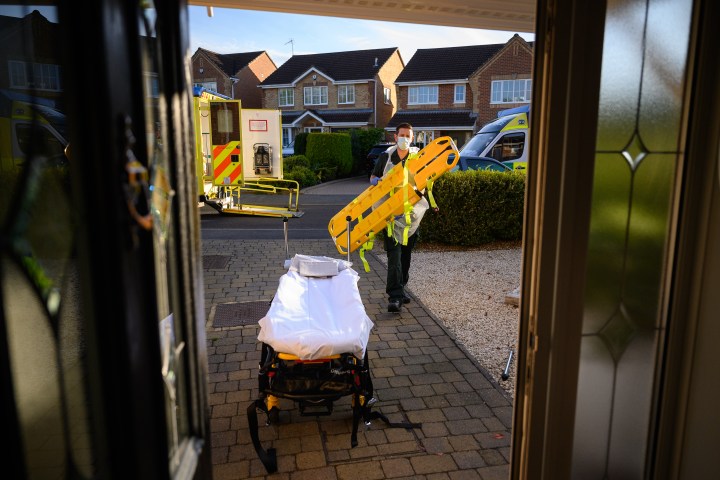COVID-19
Malaria drug touted by Trump for coronavirus fails another test

May 7 (Reuters) - The malaria treatment repeatedly championed by U.S. President Donald Trump as a "game changer" in the fight against the novel coronavirus has again failed to show a benefit in patients hospitalized with COVID-19, according to a study released on Thursday.
While the study being published in the New England Journal of Medicine had certain limitations, doctors reported that the use of hydroxycholoquine neither lessened the need for patients requiring breathing assistance nor the risk of death.
“We didn’t see any association between getting this medicine and the chance of dying or being intubated,” lead researcher Dr. Neil Schluger told Reuters in a telephone interview. “The patients who got the drug didn’t seem to do any better.”
Among patients given hydroxychloroquine, 32.3% ended up needing a ventilator or dying, compared with 14.9% of patients who were not given the drug.
But doctors were more likely to give hydroxychloroquine to sicker patients, so researchers at New York-Presbyterian Hospital and Columbia University Irving Medical Center adjusted the rates to account for that. They concluded that the drug may not have hurt patients, but it clearly did not help.
Decades old hydroxychloroquine, which is also used to treat lupus and rheumatoid arthritis, also showed no benefit when combined with the antibiotic azithromycin, Schluger’s team reported. Azithromycin alone also showed no benefit.
Last month, doctors at the U.S. Department of Veterans Affairs reported that hydroxychloroquine did not help COVID-19 patients and might pose a higher risk of death.
That analysis of medical records showed a death rate of 28% when the drug was given in addition to standard treatments, compared to 11% with standard care alone.
In the latest study, 811 patients got hydroxychloroquine and 565 did not.
Because they were not randomly assigned to receive hydroxychloroquine or a placebo, “the study should not be taken to rule out either benefit or harm” for the drug, researchers said. Randomized trials, the gold standard for tests of new therapies, should continue, they added.
But for now, “the guidance in our hospital has changed so we don’t recommend giving hydroxychloroquine to hospitalized patients,” said Dr. Schluger, chief of the division of pulmonary, allergy and critical care medicine at Irving.
Smaller studies, including one done in China, had suggested hydroxychloroquine might be useful, “but these were tiny studies and not of good quality. People seized on them because patients were dying,” he said.
There are currently no approved treatments for COVID-19, although Gilead Sciences Inc’s experimental antiviral drug remdesivir last week receive emergency use authorization from U.S. regulators. (Reporting by Gene Emery in Cranston, Rhode Island; Editing by Bill Berkrot)
"Information pertaining to Covid-19, vaccines, how to control the spread of the virus and potential treatments is ever-changing. Under the South African Disaster Management Act Regulation 11(5)(c) it is prohibited to publish information through any medium with the intention to deceive people on government measures to address COVID-19. We are therefore disabling the comment section on this article in order to protect both the commenting member and ourselves from potential liability. Should you have additional information that you think we should know, please email [email protected]"





 Become an Insider
Become an Insider